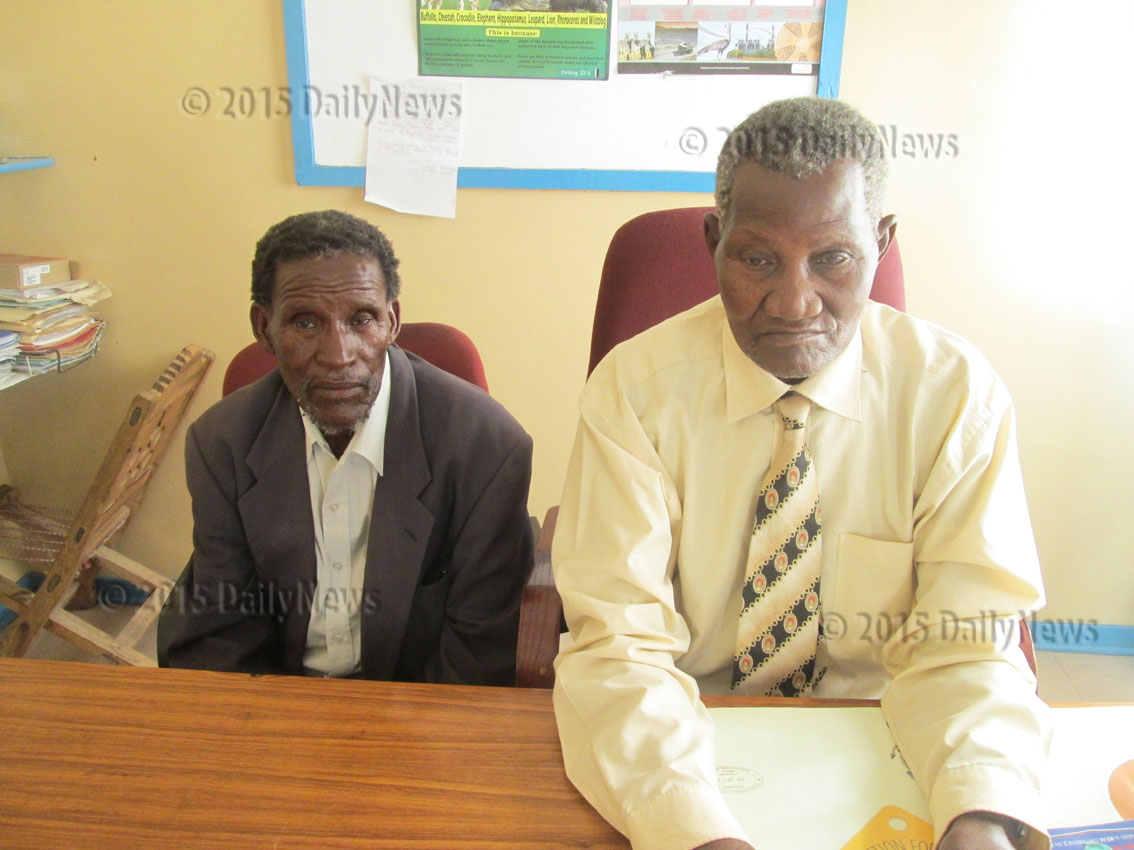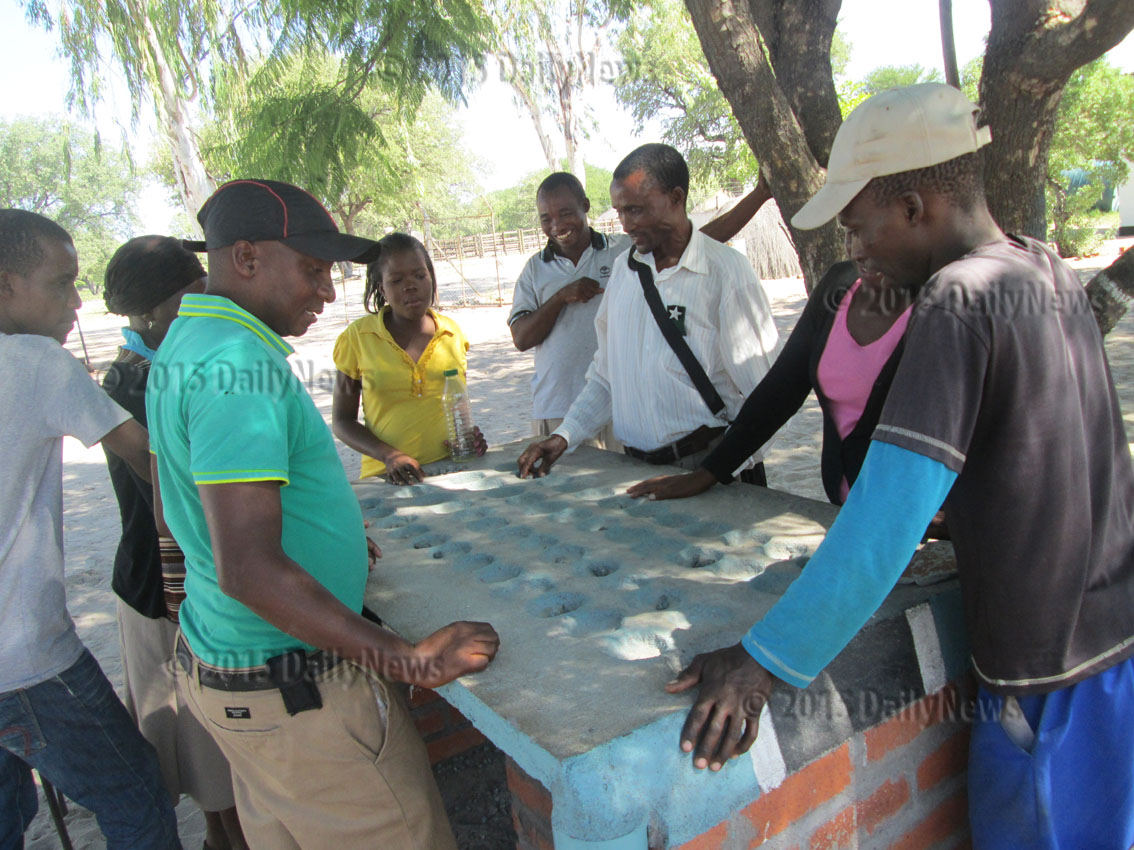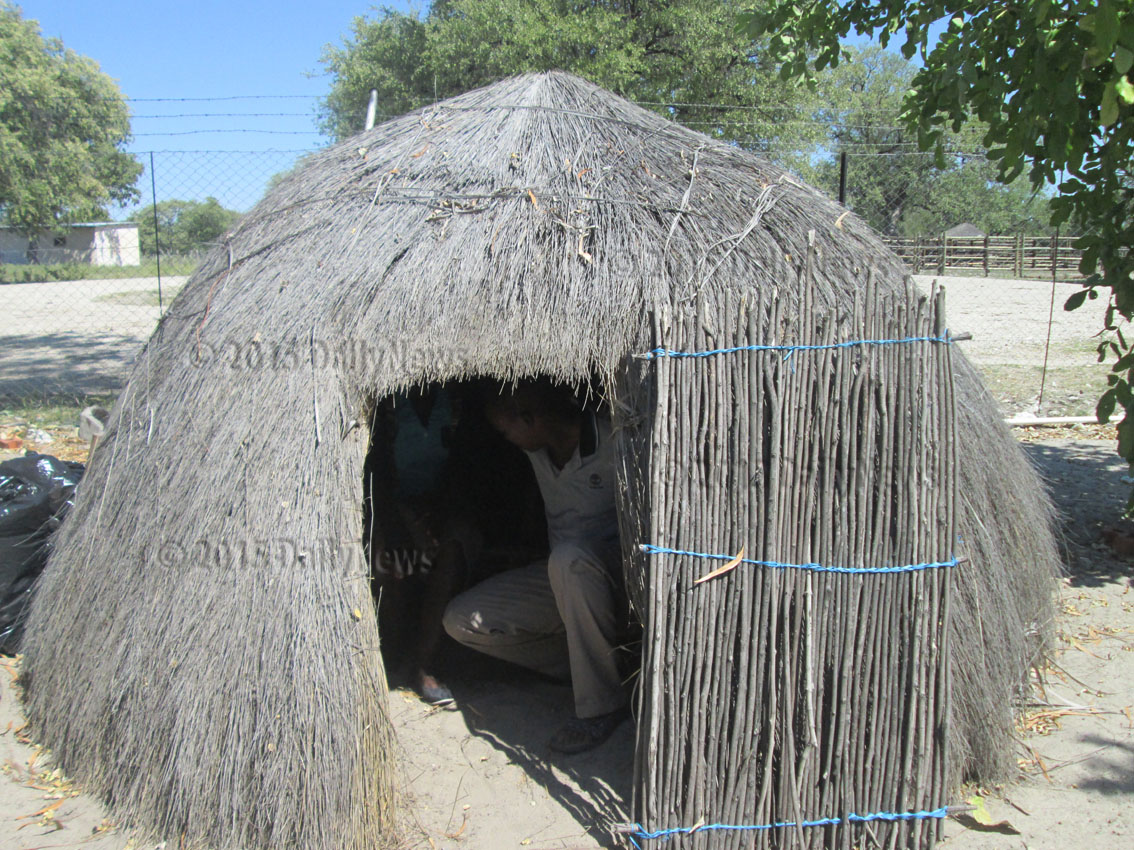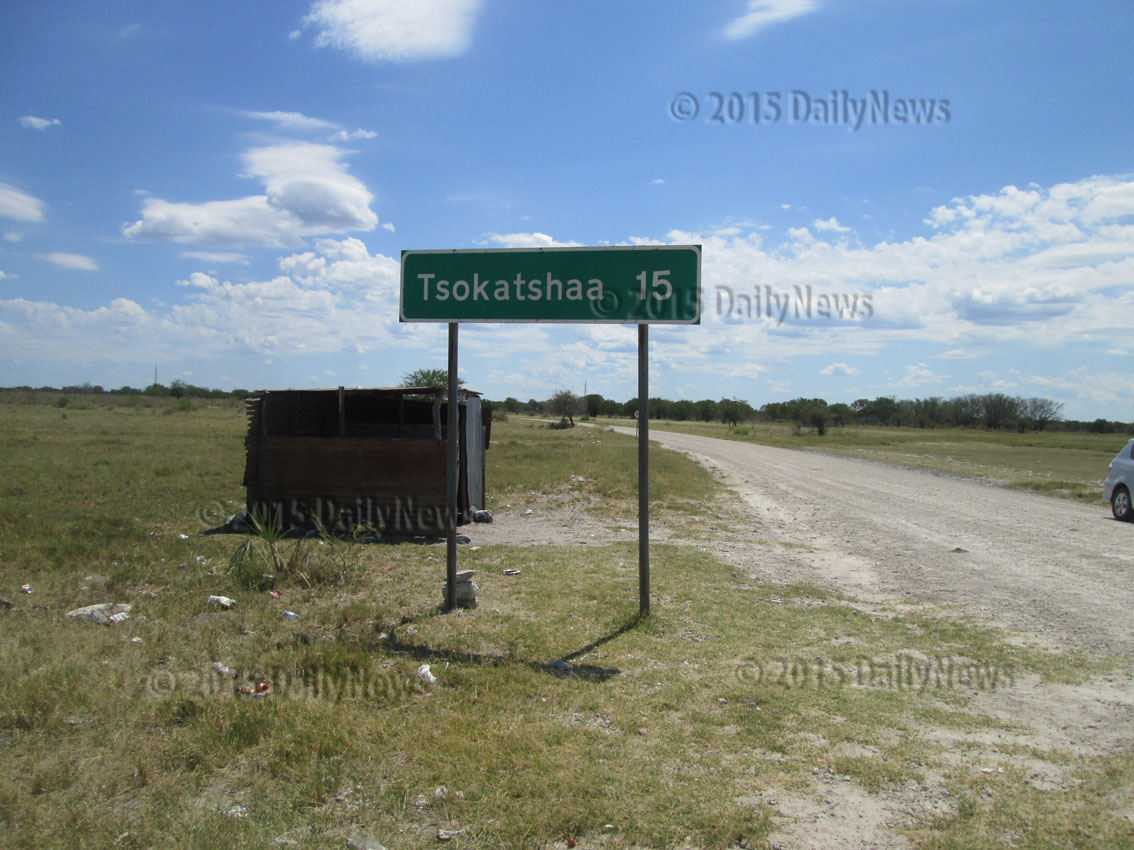A visit to Tsokotshaa
14 Apr 2015
Tsokotshaa in the Tutume sub-district lies 90 kilometres (km) west of Nata village and it is a home to more than 600 people, predominantly Basarwa.
A journey to the village is characterised by a long dusty and bumpy road that snakes its way through mophane trees.
Upon arrival, locating the village kgotla is not a hassle as the Botswana national flag colours of blue, black and white used to paint the kgotla shelter and the bold writing on the walls which says Tsokatshaa kgotla are clearly visible.
At the kgotla, Kgosi Mathubae Mokgatla of the village and other village elders exchange greetings and share some pressing issues or anything that needed immediate attention. In an interview, one of the elders, a 79 year-old Mr Gabalekane Nashadi, who said he was one of the first people who settled in the area narrated how the village came into existence.
He noted that the village started off as a settlement for a group of Basarwa who traversed the areas in search of water and pastures for their livestock. The old man said the group finally arrived at a pond (letsha), which wild animals especially elephants drink from.
He said the pond was called Chwaakatshaa, a combination of two Sesarwa words being Chwaaka, which means an elephant and Tshaa, which means water and as such the word Chwaakatshaa is loosely translated as a pond where elephants drink.
Mr Nashadi said Bahurutshe and some other ethnic groups later came to join them and they could not pronounce the name well, they ended up saying Tsokatshaa, hence the name of the village.
“The people in the village have adapted to live side by side with these wild animals that frequent the pond and even today some elephants still gather at the pond in the early hours of the morning and in the late evening to drink water,” said Mr Nashadi.
Furthermore, he also noted that before developments came through, they used branches and leaves to construct their houses and with time they changed.
Others used soil mixed with cow dung and thatched with grass while others used moulded cement bricks and corrugated iron sheets for roofing.
For his part, Kgosi Mokgatla was quick to lament that the village has not been spared from challenges of slow pace of developments, deviant behaviour by some youth and other social ills within the village.
“Although we have received developments such as the primary school, the clinic, kgotla and others, we still yearn for some especially the public transport and electricity,” he said.
Kgosi Mokgatla stated that there is no public transport and travelling to and from the village is worrisome. He noted that the 15 kilometres (km) earth road that connects the village with the Nata-Maun main road is not so fine. “Transport in this area is very depressing.
We solely depend on officers who are stationed here and it is not that they travel every day. Sometimes we even walk a distance of 15 kilometres to the main road or one can spend the whole day awaiting transport,” said the traditional leader.
Kgosi Mokgatla also decried lack of electricity, noting that it is one of the issues that lead to lack of economic activities in the village.
“Some people in the village have the potential to start-up businesses that can encourage economic activities, create employment opportunities and lead to the development of the village. But due to lack of electricity, some of them have opted to set up their businesses in some neighbouring electrified villages,” he said.
Kgosi Mokgatla is also concerned with the high rate of alcohol abuse by residents, adding that most of the youth indulge in such, adding that khadi, power and chibuku are some of the liquor brands in the village.
He further noted that it is regrettable that many youth in the village who have applied for the Youth Development Fund (YDF) have not been successful, thus condemning them to poverty and most of the people in the village depend on destitute rations.
“It is hard for most of the people here to graduate from destitute rations because of lack of opportunities that can enable them to improve their lives. Only a few who have been given some government initiatives are in a position to make ends meet,” he said.
Meanwhile, Kgosi Mokgatla also revealed that some youth fail to advance at school due to teenage pregnancy or poor performance and they only return home empty handed and only to be a burden to their poor parents.
Despite the social ills in Tsokatshaa, some people have resorted to pass time by playing traditional games, to keep away from unbecoming behaviour.
Kgosi Mokgatla is also positive that if the village can have more developments, the livelihoods of the residents would improve tremendously. ENDS
Source : BOPA
Author : Chendzimu Manyepedza
Location : TUTUME
Event : Village profile
Date : 14 Apr 2015









